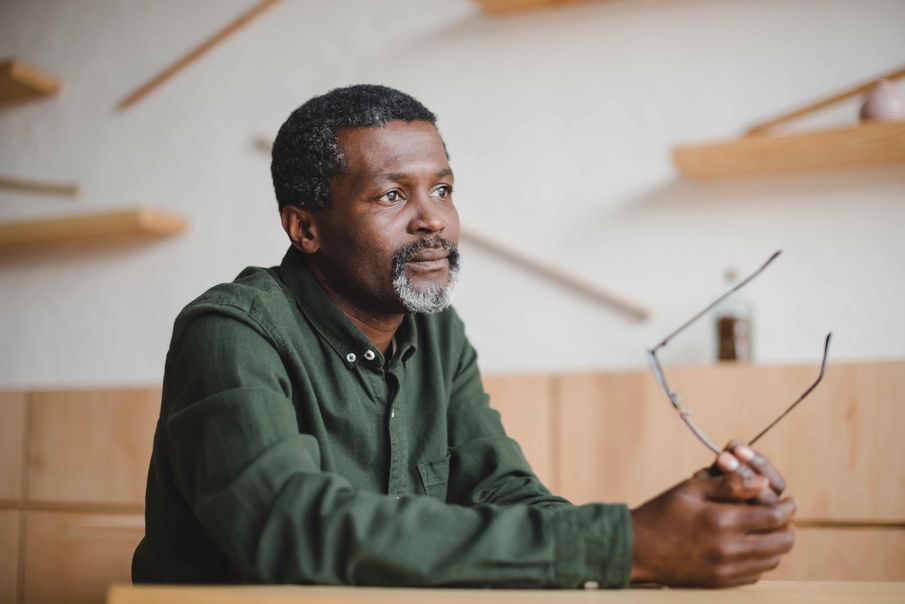We’re told getting things off our chest will make us feel better in the long run, but what should we do if we initially feel worse?
Opening up and reaching out for support is a hugely important part of working through mental health problems – both big and small. And it can often bring a lot of relief as we lighten our mental load, and begin to see the steps in front of us as we navigate a way forward. But there are times when opening up can seem extremely exposing, leaving us feeling drained, embarrassed, and even regretful.
This feeling following a deep conversation, perhaps with a close friend, a manager, or even a counsellor, is called a ‘vulnerability hangover’. At best, it’s another hurdle to jump over as we work on our wellbeing, but at its worse, it’s a barrier to opening up again.
Psychotherapist Marteka Swaby explains: “Vulnerability hangovers are caused by our fears and uncertainties of being exposed. If you are going over and over in your head, asking yourself: ‘Why did I share that?’ You are probably experiencing a vulnerability hangover, which could last a few hours, or even up to several days, depending on the way that you perceive the risk that you have taken.”
It could be a toe-curling feeling of believing you’ve said ‘too much’, or a fear of what your conversation partner might be thinking, or the judgements they may make. You may believe that you took a risk in opening up, and while the payoff could be accessing support and a more meaningful relationship, there may still be a part of you that is worried about how this will all play out.
“I have been in many situations where taking a risk starts off exhilarating, to then come crashing down to a devastating low,” Marteka reflects. “Taking an emotional risk will often be uncomfortable, especially in relationships where you want to make a good impression, or fit in and be accepted.”
Marteka points to the example of speaking up at work, perhaps letting your manager know that you’re struggling with your workload, or on dates with a new partner who you’re just getting to know. In these situations, there are a number of dynamics at play as you navigate social etiquette, while still wanting to be true to yourself.

On the other hand, counselling offers a space to discuss what’s on your mind, without balancing others’ reactions – and in this unique environment, you’ll probably speak about things you’ve never opened up about before. While it’s the appropriate place to do so, a sudden flush of vulnerability can still be unsettling, to begin with.
“Brené Brown is my go-to person on vulnerability,” says Marteka, considering the benefits of pushing past these feelings, whatever the situation. “She says: ‘Vulnerability is our most accurate measure of courage.’”
It’s a quote that will resonate with many, and for those grappling with vulnerability hangovers, Marteka has the following tips:
Complete a risk analysis
Before being vulnerable with someone, perhaps you need to complete an internal risk assessment, weighing up the pros and cons. It is often worth tolerating the vulnerability hangover if the pros far outweigh the cons. The payoff will be worth it!
Do it in a safe space
If you feel a sense of judgement or dismissal from the person you’re being vulnerable with, consider whether they are the right person to speak to, and if you have any alternatives. We all experience rejection, failure, and other shameful feelings, that make us feel vulnerable. We are not alone.
Keep the bigger picture in mind
Vulnerability is a powerful tool to build trust. We don’t need to combat vulnerability, but accept it with boldness and grace. It is in this place that we have a greater sense of peace and connection.
Beyond the feelings of doubt, fear, and embarrassment, being true to ourselves and valuing our needs is a vital part of the steps we take towards a better sense of wellbeing. So, if vulnerability hangovers have stopped you in your tracks before, try to acknowledge them as a normal stage in your journey, and keep your focus on the horizon – and the empowering, productive, supportive relationships that await you when you take that monumental first leap of faith.
To connect with a counsellor and discuss your feelings in a safe space, visit counselling-directory.org.uk


Comments